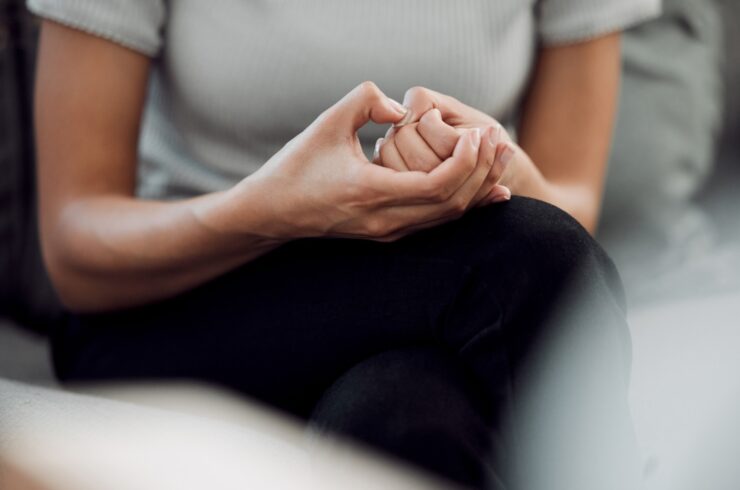Anxiety is a condition that plagues millions of people worldwide. Everyone experiences varying symptoms. Severe anxiety can be life-altering and debilitating, while even minor anxious episodes can derail an evening or make getting through a work presentation challenging.
Most people, from athletes to college professors, are typically eager to find ways to overcome anxiety. They’d much rather go through life without the nervous feelings or obsessing over what they say and how they’re perceived.
Anxiety can freeze you into inaction, making it difficult to do everyday things like build relationships, succeed at work, or pursue an education.
If you or someone you know struggles with anxiety, here are some proven ways to reduce symptoms and prevent anxiety attacks. Give them a try, and hopefully, you’ll see a meaningful reduction in some of the problematic effects of anxiety.

Recognize the Anxiety
Unfortunately, many people live with anxiety without understanding what’s happening. They fret over things or obsess about encounters that people without anxiety wouldn’t usually think twice about. As a result, anxious people are fidgety, have trouble focusing on things, and struggle with social interactions.
Frequently, anxiety is something akin to stage fright. For example, people get nervous when they think about going to a new school, starting a new job, or meeting new people. However, clinical anxiety can be something much different.
In severe cases, anxiety can prevent someone from living an everyday life. It hinders self-confidence and one’s ability to perform what are often regular tasks. In addition, people with high levels of anxiety often struggle with depression and other disorders.
In those cases, it’s essential to seek professional medical assistance. In addition, there may be situations where therapy and medication are required to get people to a healthier place where they can manage their anxiety.

Identify Anxiety Triggers
Once you understand and recognize your anxiety, it’s time to start identifying potential triggers of an anxiety attack. For example, if speaking in front of large crowds triggers anxiety, you should try to condition yourself for those uncomfortable situations.
Certain things in life are worth fighting anxiety to enjoy. Making friends, romantic relationships, and career experiences are just a few examples. Unfortunately, these types of things may warrant a bit of discomfort as you find coping methods and other ways to overcome anxiety symptoms. Eventually, you should have strategies that dull the effects of anxiety or make it disappear.
There are, however, times when anxiety triggers are best avoided. Some examples include things like being in a toxic relationship, abusive relationships, triggers of past trauma, and any threats to physical or mental safety.
Sometimes, it’s best to avoid situations, especially where there aren’t many benefits to powering through an anxiety attack.

Strategies to Soothe Anxiety
Not all strategies will work equally for everyone who experiences anxiety. However, using some or a combination of a few strategies may make living with anxiety more manageable. Here are some basic things that can have a meaningful impact as you fight anxiety.
Getting enough sleep – Sleep is so important for your emotional health. If you’re tired, you’re less capable of dealing with the stress that comes to your way or situations that could trigger anxiety. So make sleep a priority and set the conditions at home that makes falling asleep easier. In addition, invest in some quality bedding to increase your sleep quality.
Get fit – Losing weight and having confidence in your body will help you fight anxiety. Do your best to drop the extra pounds, and you’ll be amazed at how much better it makes you feel. You’re also less worried about your overall health when you’re in better shape. Your body responds the way you need it to under stress more reliably.
Meditate – People who struggle with their anxiety often try to force the feelings out of their heads. As a result, they start an internal battle that usually escalates how they feel. Instead, focus on meditating on your emotions and accepting what you’re going through. Tell yourself that you’re feeling anxious, and try to center yourself before things spin out of control.
Build a support group – Tell your friends and other people you trust about what you’re going through. When you have a social support system, you bring your anxiety out in the open, making it less of a secret that can cause shame or fear. In addition, your friends will be there for you when you need someone to talk to.

Peptides & Dealing with Anxiety
Selank is a short synthetic analog of tuftsin. In studies done on animal models, the peptide has been found to have excellent anti-anxiety properties. Test subjects that were given Selank also saw significant boosts to cognitive abilities like memory and learning.
Research indicates that peptide Selank has strong anti-anxiety effects. It also delivered neuroprotective benefits in conjunction with anxiety treatment. It also appears to not have any habit-forming properties, and there were no withdrawal symptoms once test subjects stopped taking it.

